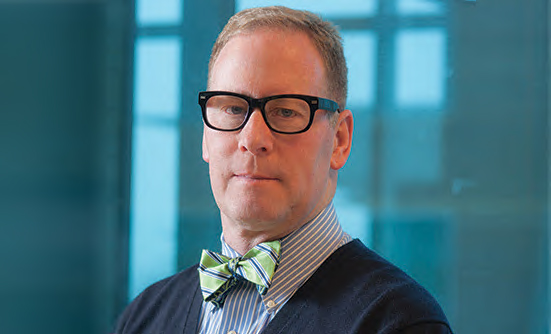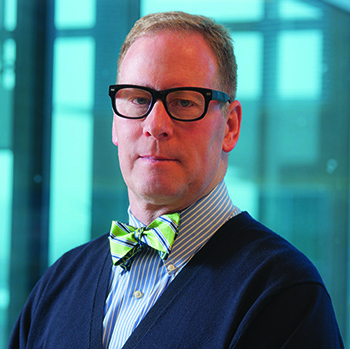It was the season of family gatherings. The 6 weeks between Thanksgiving and New Year’s finds people filling up highways, back roads, airport terminals, and train and bus stations as they head in all directions to their family homes in celebration of these annual holidays. It’s a time of family meals, reunions, cooking, and eating. Lots of eating.
In the “cancer world,” this is also a time for family meetings, although these are in stark contrast to the joy and merriment normally associated with Christmas and Thanksgiving. Joining the family at the meeting for a frank, but compassionate, discussion of the patient’s condition and prognosis are usually the patient’s oncologist, a physician’s assistant, oncology nurse, care coordinator, social worker, and palliative care team leader.
Stage III Colorectal Cancer at Age 25?
In November 2019 I was part of a family meeting for my 31-year-old nephew, who was in the final weeks of what had been a 5-year odyssey living with colorectal cancer, which was now at stage IV and aggressively metastasizing its way into his lungs, pelvis, and bladder. He was diagnosed when he was a 25-year-old graduate student at the University of Massachusetts in Amherst, and the news was unbelievable and crushing.
The last thing any young adult expects is a cancer diagnosis, which is normally associated with people aged 30 or older. Stage III colorectal cancer at 25? It is a disease that a middle-aged man like me is more likely to face than a young adult who should be just beginning his life, with wide open roads filled with future possibilities ahead of him.
And yet, we sit in a darkened Boston hospital room trying to make sense of a life cut short by this unforgiving disease and a harsh reminder of cancer’s dominance over medicine and some of the brightest scientific minds one could imagine.
Waves of Blankets
A quick look at the faces of the hospital’s medical team assembled in this room tells me that there is nearly 100 years of collective experience among them, and despite this incredible knowledge, they will be unable to save my nephew’s life. I realize that this is not an indictment of their ability, but rather a genuflection to cancer’s indestructible nature. And despite their familiarity with this unfortunate situation, I also feel their unlimited concern, care, and compassion. And, of course, I wonder what they imagine when they look back at our faces; his parents and wife, my wife and myself.
Can they see the heartbreak in our eyes? Does the overwhelming weight of losing a loved one—one so young and filled with promise—show on our faces? There is a saying in Chinese culture that loosely translates to “the gray hair should never bury the black hair.” In my American culture, we acknowledge that perhaps the most devastating moment that parents should live through is to see any of their children die before they do.
When I look at my nephew’s face, he looks small, vulnerable; almost childlike, as he lies in his hospital bed shrouded by waves of blankets and hospital-issued linen. Not the strapping and confident man who stepped off that plane from China 10 years ago into a new life in Boston. His illness and subsequent treatment have left him with this insatiable desire for warmth.
The entire cancer journey, I understand, is different for each person, and although many people experience side effects that are often associated with the disease, among them hair loss, nausea, weight loss, and anemia, there are those reactions that are unique to each individual, such as my nephew’s inability to get warm.
His face—especially his eyes—is also filled with fear and confusion. “How can this be happening to me,” I imagine him saying to himself. “Why is this type of cancer inhabiting me at this stage in my life?”
“Why do I have to die so soon?”
The Emotional Weight of Caring
When the medical team leaves the room, I reflect on how they are able to move through the rest of their day after such a heart-wrenching conversation with a young man who had hoped that they might find an answer for this insidious disease. After listening to them speak to us for more than an hour, I cannot imagine them not being moved by his circumstances and affected by the knowledge that his life is now being measured in weeks, if not days. I think to myself that it must be impossible for people in their positions not to bring an element of their daily job home with them.
And yet, for them to perform their jobs effectively and be present for the next family that needs their skills and direction, they simply cannot allow themselves to fall victim to the gravity of what must also be emotional for them. They must be able to give emotions their proper due and prepare themselves for the next patient with cancer in need. Perhaps they have learned to compartmentalize their feelings, or the near-constant exposure to death and dying has given them the experiences that enable them to function professionally while at the same time understanding the emotions of their patients and families.
My experience with death has been limited. My infant son never made it out of the hospital, finally succumbing to glioblastoma within months of his birth. When I was 18, a friend and basketball companion suddenly dropped dead of a heart attack after basketball practice. I was 25 when my mother died of ovarian cancer on a Christmas Eve afternoon, and this year a dear friend and colleague lost her battle with colon cancer after living through nearly 13 years of remission.
In each case, it was not just the death of these people that consumed me. It was knowing that at some point I was expected to move beyond the tragedy of the passing of someone I loved. It is an emotion with which I still struggle, and a question I am still unable to answer. We are never sadder than at the loss of a loved one, and yet, for us to survive we must be able to grieve a loss and press on.
Acknowledging Death
I remember after my Mom’s passing, a friend directed me to a poem by a fellow Scot, which seemed appropriate at my mother’s death. She was born in Scotland, and, at least in her heart, never left her homeland. It was a poem called “Funeral Blues,” by W.H. Auden, in which he suggests that a death is worthy of acknowledging and should, at a very deep level, interrupt our lives—maybe the entire universe.
Funeral Blues
By W.H. Auden
Stop all the clocks, cut off the telephone.
Prevent the dog from barking with a juicy bone,
Silence the pianos and with muffled drum
Bring out the coffin, let the mourners come.
Let aeroplanes circle moaning overhead
Scribbling in the sky the message He is Dead,
Put crêpe bows round the white necks of the public doves,
Let the traffic policemen wear black cotton gloves.
He was my North, my South, my East and West,
My working week and my Sunday rest
My noon, my midnight, my talk, my song;
I thought that love would last forever, I was wrong.
The stars are not wanted now; put out every one,
Pack up the moon and dismantle the sun.
Pour away the ocean and sweep up the wood;
For nothing now can ever come to any good.
I know it’s impossible to expect, but I want the world to feel the loss I will feel when my nephew dies. I want people to understand that this was a beautiful and kind young man, who left us far too soon, and he will be missed. I want everyone to share in the loss with me and know that life will be just a little different now that he is gone.







